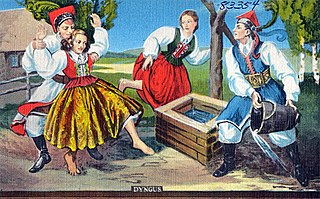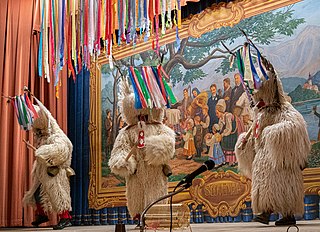
Carnival is a Christian festive season that occurs before the liturgical season of Lent. The main events typically occur during February or early March, during the period historically known as Shrovetide. Carnival typically involves public celebrations, including events such as parades, public street parties and other entertainments, combining some elements of a circus. Elaborate costumes and masks allow people to set aside their everyday individuality and experience a heightened sense of social unity. Participants often indulge in excessive consumption of alcohol, meat, and other foods that will be forgone during upcoming Lent. Traditionally, butter, milk, and other animal products were not consumed "excessively", rather, their stock was fully consumed during Shrovetide as to reduce waste. This festival is known for being a time of great indulgence before Lent, with drinking, overeating, and various other activities of indulgence being performed. For example, pancakes, donuts, and other desserts are prepared and eaten for a final time. During Lent, lacticinia and animal products are eaten less, and individuals make a Lenten sacrifice, thus giving up a certain object or activity of desire.

Polka is a dance and genre of dance music originating in nineteenth-century Bohemia, now part of the Czech Republic. Though associated with Czech and Polish culture, polka is popular throughout Europe and the Americas.

Ennis is a city in eastern Ellis County, Texas, United States. The population is 20,159 according to the 2020 census, with an estimated population of 21,210 in 2021. Ennis is home to the annual National Polka Festival.
The Baylor University Chamber of Commerce is the oldest student organization at Baylor University. Founded on February 26, 1919, the Chamber aims to contribute significantly to the welfare and enhancement of the university's ethos with its core purpose revolves around emphasizing key values and fostering a sense of unity and engagement within the university community and beyond.
The culture of Boston, Massachusetts, shares many roots with greater New England, including a dialect of the Eastern New England accent popularly known as Boston English. The city has its own unique slang, which has existed for many years. Boston was, and is still, a major destination of Irish immigrants. Irish Americans are a major influence on Boston's politics and religious institutions and consequently on the rest of Massachusetts.

The Antiguan Carnival is a celebration of the emancipation of slavery in the country held annually from the end of July to the first Tuesday in August. The most important day is that of the j'ouvert, in which brass and steel bands perform for much of the island's population. Barbuda's Carnival, held in June, is known as Caribana. The Antiguan and Barbudan Carnivals replaced the Old Time Christmas Festival in 1957, with hopes of inspiring tourism in Antigua and Barbuda. Some elements of the Christmas Festival remain in the modern Carnival celebrations.
Czech Americans, known in the 19th and early 20th century as Bohemian Americans, are citizens of the United States whose ancestry is wholly or partly originate from the Czech lands, a term which refers to the majority of the traditional lands of the Bohemian Crown, namely Bohemia, Moravia and Czech Silesia. These lands over time have been governed by a variety of states, including the Kingdom of Bohemia, the Austrian Empire, Czechoslovakia, and the Czech Republic also known by its short-form name, Czechia. Germans from the Czech lands who emigrated to the United States are usually identified as German Americans, or, more specifically, as Americans of German Bohemian descent. According to the 2000 U.S. census, there are 1,262,527 Americans of full or partial Czech descent, in addition to 441,403 persons who list their ancestry as Czechoslovak. Historical information about Czechs in America is available thanks to people such as Mila Rechcigl.
Applefest is a yearly village-wide food, entertainment and crafts fair, taking place in several towns in Canada, the United States and England.
Polka is a music and dance style that originated in Bohemia in the 1830s and came to American society with immigrants from Europe. A fast style in 2
4 time, and often associated with the pre–World War II era, polka remains a dynamic "niche" music in America.
The Pierogi Fest is an annual festival in Whiting, Indiana, United States, organized by the Whiting–Robertsdale Chamber of Commerce (WRCoC). It gets its name from the pierogi, a Polish dumpling. It draws more than 250,000 visitors each year.

Mardi Gras in the United States is not observed nationally across the country, largely due to the country's Protestant and Anglo-Saxon roots. Mardi Gras and Carnival are mostly Catholic holidays, while the United States has a Protestant-majority population. However, a number of cities and regions in the U.S. have notable Mardi Gras or Carnival celebrations. Most of these places trace their Mardi Gras celebrations to French, Spanish, and other Catholic colonial influences on the settlements over their history. The earliest Carnival celebration in North America occurred at a place on the west bank of the Mississippi River about 60 miles (97 km) downriver from where New Orleans is today; this Mardi Gras on March 3, 1699, and in honor of this holiday, Pierre Le Moyne, Sieur d'Iberville, a 38-year-old French Canadian, named the spot Point du Mardi Gras near Fort Jackson. The earliest organized Carnival celebrations occurred in Mobile, then the capitol of French Louisiana known as Fort Louis de la Mobile, where in 1704 the first known Carnival secret society. In 1856, six Mobile natives established the first secret society, or krewe, in New Orleans, the Mistick Krewe of Comus. Former French and Spanish colonies such as Pensacola, Biloxi, and settlements along the Gulf Coast all followed suit in incorporating Carnival into their annual celebrations, which today have developed either separate traditions or variations of them from one another. In addition, modern activities generally vary from city to city across the U.S.
Bavarian Blast is the summer festival held every year in New Ulm, Minnesota, United States. The festival features numerous bands, activities and attractions. Due to its growth in popularity over the years, the location was moved from the downtown area to the local fair grounds. The weekend event includes local bands, Tubamania, 10K Race, and a parade. The festival is held mid-July.
Houston International Festival, also known as iFest, was a contemporary, multi-disciplinary, multi-cultural arts and music festival held annually in Houston, Texas. This North American festival takes place every April on 16 acres (65,000 m2) in downtown Houston's parks and plazas. By city ordinance this annual 10-day event is Houston's official city celebration of the visual and performing arts. According to an article in the Houston Chronicle, Ifest announced in June 2014 that it was seeking Chapter 7 bankruptcy protection, making it clear that the 2014 fest would be the last ever festival.
The culture of Columbus, Ohio, is particularly known for museums, performing arts, sporting events, seasonal fairs and festivals, and architecture of various styles from Greek Revival to modern architecture.

Oktoberfest, USA is an annual celebration held in La Crosse, Wisconsin, United States, usually on the final week of September and into the beginning of October. It is one of the largest, and longest running Oktoberfest celebrations in the Midwestern United States. The celebration was first held in 1961, and today draws crowds of up to 150,000 people annually.
Charro Days, also known as Charro Days Fiesta or Charro Days Festival, is a two-nation fiesta and an annual four-day pre-Lenten celebration held in Brownsville, Texas, United States in cooperation with Matamoros, Tamaulipas, Mexico. The grito—a joyous Mexican shout—opens the festivities every year. This festival is a shared heritage celebration between the two border cities of Brownsville, Texas and Matamoros, Tamaulipas. The Charro Days festivals usually have about 50,000 attendees each year. This celebration includes the Sombrero Festival as well as a parade that goes down Elizabeth St. through Historic Downtown Brownsville, TX.

Śmigus-dyngus is a celebration held on Easter Monday across Central Europe, and in small parts of Eastern and Southern Europe. The tradition is widely associated with Poland and is observed by Polish Diaspora communities, particularly among Polish Americans who call it Dyngus Day.

Czech Texans are residents of the state of Texas who are of Czech ancestry. Large scale Czech immigration to Texas began after the Revolutions of 1848 changed the political climate in Central Europe, and after a brief interruption during the U.S. Civil War, continued until the First World War. Concentrated in Central Texas, Czech Texans have preserved their identity through the Painted Churches of Texas, traditional Czech events, and bakeries specializing in Czech pastries.

Cleveland Kurentovanje is a Slovenian-American festival celebrating the end of winter and the beginning of spring, taking place annually the weekend before Ash Wednesday, in Cleveland, Ohio, mirroring Kurentovanje in Slovenia.
















